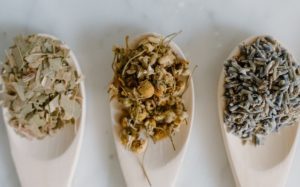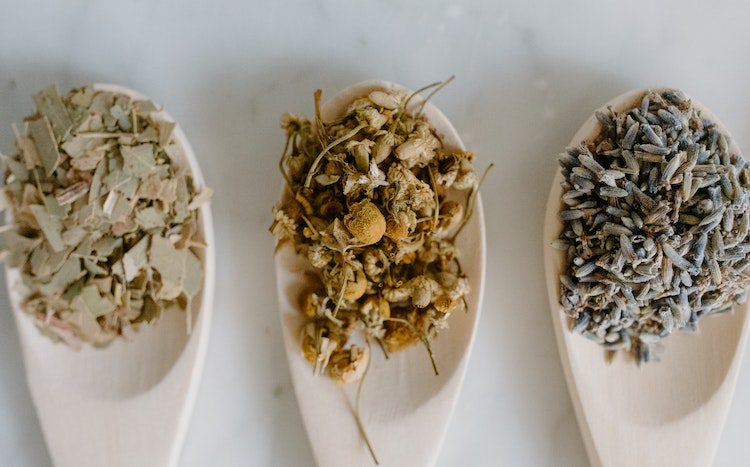 Exploring herbal therapies during your recovery process can be empowering and transformative. Throughout history, thousands of botanical remedies have been recognized for their healing potential. Many of these same herbals have been adapted for present-day applications through the pharmaceutical and other industries.
Exploring herbal therapies during your recovery process can be empowering and transformative. Throughout history, thousands of botanical remedies have been recognized for their healing potential. Many of these same herbals have been adapted for present-day applications through the pharmaceutical and other industries.
From the hepatoprotective, or liver-protecting, abilities of bitter herbs to the detoxification potential of the many types of non-psychoactive mushrooms, we are just beginning to scratch the surface of a new form of therapy grounded by more natural roots. Clinical herbalists, both traditional and modern, actively incorporate herbal medicine into their lives and the lives of their patients, including those in addiction recovery. Research shows that ailments commonly experienced by those in addiction recovery–insomnia, loss of appetite, and irritability, to name a few–may improve with herbal support.
The herbal allies mentioned below are not intended to treat any conditions; they are suggestions based on academic research. Each herb has been considered for its potential to support those moving through the recovery process who are dealing with a variety of associated physical and emotional symptoms.
5 Herbal Allies for Addiction Recovery
Lemon Balm (Melissa officinalis)
In ancient Greece, the Romans would often flavor beverages using the fruity, aromatic leaves of the lemon balm shrub. It was used to mend a broken heart and uplift the spirits. Current research also suggests that lemon balm may affect our moods, particularly by increasing happiness and decreasing feelings of anxiety and nervous tension. Those moving through addiction recovery who struggle with anxiety may find comfort in a warm cup of lemon balm tea. Some research suggests that lemon balm may be beneficial for sleeping disorders and gastrointestinal distress as well.
Valerian (Valariena oficinalis)
As its name suggests, Valerian has much effect on the valor of an individual. It was said that Hippocrates treated Alexander the Great’s battle wounds with Valerian, as well as giving him a tea of the root to soothe his trauma after the war. Beyond folklore, Valerian has been modernly used to treat Post Traumatic Stress Disorder or PTSD as well as for hysteria, irritability, migraines, and insomnia. Research shows promising results after short usage of the herb through tea or extract (tincture) form. Do not be put off by the pungent scent of the root: its medicinal potential far outweighs any adverse experiences. Try masking the flavor with honey or other herbs that you or those whom you are supporting find enjoyable.
Skullcap (Scutellaria lateriflora)
With over three hundred Skullcap species dispersed throughout the world, it is no surprise that it has been utilized by both ancient and modern civilizations alike. Traditional Native American tribes used skullcap to treat bouts of diarrhea, soothe an upset stomach, and to calm an overly active mind. Skullcap is used in Traditional Chinese Medicine as an anti-inflammatory for many conditions, proving to be beneficial for both heart and mental health. Those moving through recovery may be experiencing anxiety or other nervous tendencies that Skullcap may be able to support. Research has also highlighted its promising use in the treatment of insomnia, muscle tremors and weakness, and skin conditions such as acne or eczema. A warm cup of Skullcap tea before bed is the perfect addition to any nighttime routine.
Reishi (Ganoderma lucidum)
Also referred to as the Mushroom of Immortality, this fungus has been worshiped for thousands of years for its life-giving abilities. In Traditional Chinese Medicine, the Reishi is considered the powerhouse when it comes to supporting detoxification of all body systems, in particular the blood. Reishi contains a high level of antioxidants that research suggests may contribute to the prevention of certain diseases and support the general health of the liver, lungs, heart, and nervous system. This fungus also helps to improve the immune system, keeping us healthy along the recovery journey. Many going through the recovery process may find support from the calming, grounding effects of Reishi tea or a recipe using Reishi powder–both can be found in most grocery stores in the tea or supplement aisles.
Ashwagandha (Withania somnifera)
Ancient Indian practitioners often reference Ashwagandha in Ayurvedic medicine as the herb of longevity. It was often used in applications to treat a variety of anxious conditions, to improve cognitive function, and to balance the immune system. Modern research reveals an even greater therapeutic potential of Ashwagandha, pointing out its ability to affect specific chemical messengers such as GABA (a neurotransmitter affecting mood, anxiety, and energy) in the brain. Research also suggests that consuming a tea of Ashwagandha may support better sleep, improve liver function, ease an overactive mind, and support lung health. While moving through recovery, many may find great benefit from the tension-relieving effects of this potent plant.
The gentle and innate healing abilities of many herbal medicines have been preserved throughout thousands of years and have resurfaced in a huge way. Our demand for more natural alternatives is increasing, and there’s no sign of this healthy movement slowing down. Fortunately for us, reliable research about natural and potentially safer therapies is now readily available to anyone with internet or library access.
While the recovery process at Great Oaks does not incorporate herbal medicine into any programs directly, we encourage our clients to explore the many tools available to support recovery. Although most are considered safe, some herbs may interfere with medications such as antidepressants or those used for cardiovascular conditions. Please consult your healthcare professional before incorporating any herbs into your routine.



